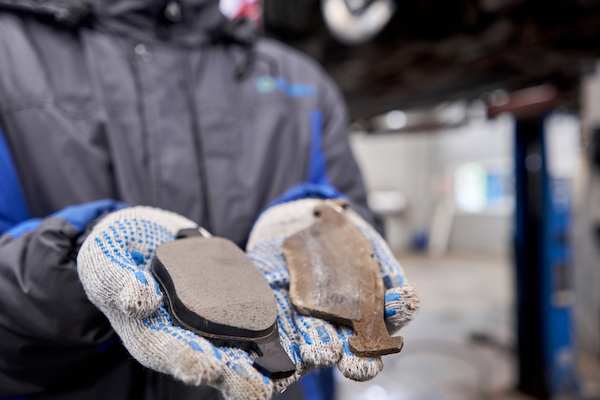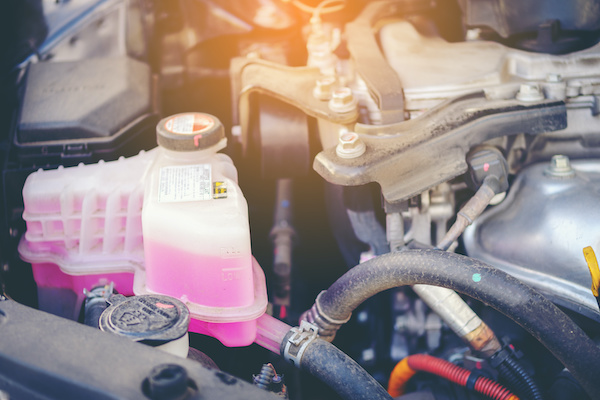Posted on 6/24/2021

You have been planning this trip for months. After all, who wouldn't desire to break free from the ordinary routine, breathe fresh air, meet new people, and visit new places? You are finally ready. Your bags packed, designated routes mapped out, and hotels booked. But how prepared is your car for this adventure? Nothing could be more frustrating than a vehicle breaking down on you while you are miles away from home. Here are some brilliant tips to help you stay safe and make the most of your road trip. Inspect Your Tire Thread Your tires are the only source of traction between your car and the road surface. Ensure that your tires are well treaded to facilitate maximum control and handling ability, especially when it rains. Also, check your tire pressure and ensure that it measures up to the manufacturer's recommended guidelines as indicated on your car manual. Do not forget to inspect the wheels for any signs of cracks or bulges. Get a Car Tune-Up If you cannot remember the ... read more
Posted on 5/26/2021
.jpeg)
Many bad habits are linked to our behavior patterns. The same can be said of our driving. Learn how your driving habits can affect your vehicle's performance. You may also want to learn how to change these habits to make your car drive better and last for years to come. 1. Resting Your Hand on the Gear Shift of an Automatic Transmission We know it is a comfortable position to have your hand resting on the gear shifter of the car. Did you know, though, that this can put pressure on the transmission bushings and synchronizes? It is best to keep both hands on the steering wheel. 2. Making Hard Starts or Stops The hard starts at the green lights will cause poor fuel mileage. If you can, ease your foot onto the gas pedal and take off as slowly as possible. Also, the hard stops will cause more wear and tear on the braking components of the vehicle. When these parts wear down, you will need to replace them sooner than you should have if you had been stopping suddenly only when n ... read more
Posted on 4/26/2021
.jpeg)
April is known as National Car Care Month. And, with good reason. Winter wreaks havoc on cars and after the winter thaw, it becomes necessary to perform an annual spring maintenance check and inspection on your vehicle. This is to ensure that all aspects of your motor vehicle are performing at an optimal level. Small hidden problems can thus be identified and addressed before these problems become serious. Here are seven checklist items for your annual spring maintenance check and inspection: Test and Replace Your Car Battery The car's battery and the electrical system work harder during winter, and thus, it becomes necessary to check and replace the battery during spring. Check Car Tires Changing temperatures could result in uneven air pressure. This in turn causes uneven wear on the tires. Apart from tire pressure, tire treads should also be inspected to ensure that there is sufficient tread left. Place a penny in the groove of the tread. If t ... read more
Posted on 3/17/2021

When bringing your car to a stop, it may briefly cross one's mind that there is a mechanism at work that pushes one thing against another, ultimately bringing the vehicle to a halt, as and when you need to. You may even have heard home-based mechanics talking about brake shoes and brake pads and other words that relate to bringing vehicles to a safe halt, and these words being bandied about may even sound like they mean the exact same thing. But this is not true. Brake shoes and brake pads are essentially two different parts of a whole braking system in your car. We all know that brake pads' primary function is to slow down or stop the motion of a moving machine or vehicle. But do you understand what a brake pad itself does to stop or slow down a vehicle or a machine? This is the part of the braking system in your car that is the rubber lining inside the caliper, which is part of the large metal structure clamped to the side of the rotor, located at your car's wheels. B ... read more
Posted on 2/19/2021

A thermostat is an essential part of running a car engine because it regulates the temperature using coolants. The thermostat, which is a cooling component, prevents the flow of coolants to the engine until the engine heats up. It has a sensor that opens it when the engine is running hot and restores it to the radiator's optimal operating temperatures. In case the car engine heats up, and it remains like that, then the engine's performance will be affected because there is no way it will get to optimal working temperatures on its own. Before that happens, knowing how a normal and faulty thermostat works are vital for a car owner, driver, or mechanic. For that reason, the common symptoms that indicate a failing thermostat include: 1. An overheating engine This is the first and most alarming symptom of a failing thermostat. When the temperature gauge is reading very high after starting the engine, and it remains the same for a while, that is a bad thermostat s ... read more